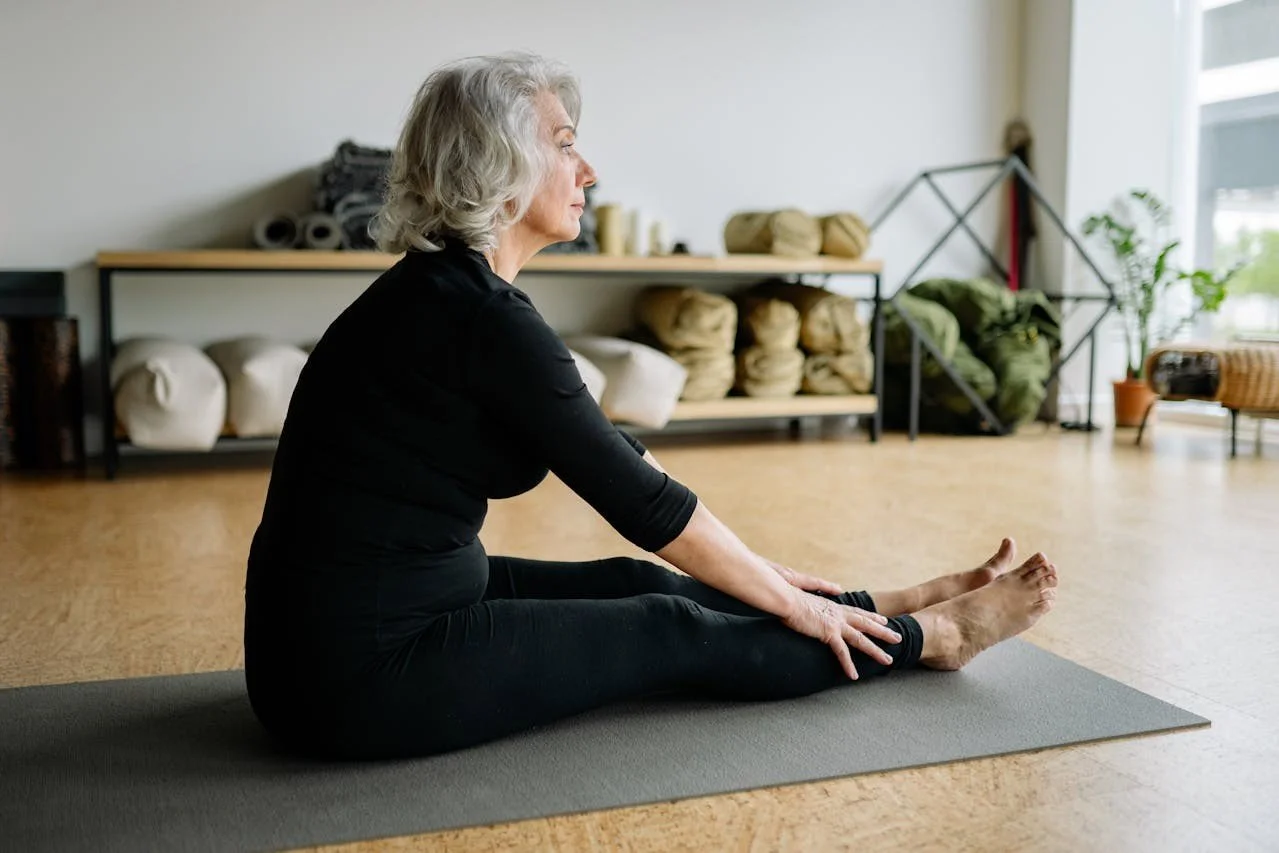The Balanced Brief: How Work-Life Harmony Builds Unshakable Confidence in Your Legal Practice
It was 10 pm, and I was hunched over my desk for the third night in a row, reviewing discovery documents for a complex trucking case. My eyes burned, my back ached, and my mind felt like it was swimming through molasses. I'd been telling myself that this level of intensity was what "serious lawyers" did—that success required this kind of sacrifice.
Then my phone buzzed. A text from my wife: "What should I do about your dinner?"
Those simple words that stopped me cold.
Here I was, having built what everyone considered a successful practice, winning complex cases, earning the respect of peers, and generating substantial revenue. Yet, I felt like I was failing at the things that mattered most. More troubling was how this exhaustion was affecting my confidence in court. Despite my preparation, I found myself second-guessing decisions, hesitating during cross-examinations, and carrying a nagging sense that I wasn't performing at my best.
That night, I made a decision that would transform not just my practice, but my entire relationship with the law: I was going to figure out how to be both an excellent attorney and a present human being. What I discovered challenged everything I believed about success in our profession.
The Great Lie We Tell Ourselves
We've been sold a myth in the legal profession—that excellence requires exhaustion, that dedication demands sacrifice of everything else that makes life meaningful. It's so pervasive that we wear our 80-hour weeks like badges of honor and judge our commitment by how much we're willing to give up.
However, here's what four decades of practice have taught me: this approach not only fails to build confidence, but it systematically destroys it.
Think about it logically. When you're operating on four hours of sleep, surviving on coffee and adrenaline, and haven't had a meaningful conversation with a loved one in weeks, are you bringing your best self to that deposition? That client meeting? That closing argument?
The attorneys I coach often describe feeling like they're performing their professional roles rather than authentically inhabiting them. They're going through the motions of confidence while internally questioning every decision they make. This isn't weakness; it's the natural result of a system that depletes the very resources confidence requires.
The Three Pillars of Balance for Legal Professionals
True work-life harmony for attorneys isn't about working fewer hours (though that might happen). It's about creating sustainable systems that allow you to bring your full capacity to both your practice and your life. This foundation rests on three interconnected pillars:
1. Physical Resilience: Your Body as Your Most Important Tool
Your brain—the instrument of your profession—resides in a body that requires maintenance. Yet we often treat our physical needs as obstacles to overcome rather than resources to optimize.
Energy Architecture: Every attorney has natural rhythms of mental clarity and creativity. I've discovered that my sharpest analytical thinking occurs between 8 AM and 11 AM, while my best client relationship work happens in the afternoon, when my natural empathy peaks. Mapping these patterns and scheduling accordingly transformed my effectiveness.
Strategic Recovery: Recovery isn't just about getting enough sleep (though that's crucial). It's about understanding that your brain needs different types of rest. Sometimes it requires the complete shutdown of sleep. At other times, it requires the active rest of physical movement or the restorative rest of activities that engage different neural pathways entirely.
Somatic Awareness: Our bodies often signal stress and imbalance before our minds become aware of the problem. Learning to recognize tension in your jaw during client calls, the knot in your stomach before difficult conversations, or the way your shoulders creep toward your ears during intense research sessions gives you early warning systems for maintaining balance.
The goal isn't perfection—it's building a practice that works with your biology rather than against it.
2. Mental Boundaries: Protecting Your Cognitive Real Estate
Mental boundaries aren't about compartmentalizing your life into rigid boxes. They're about creating psychological containers that allow you to be fully present wherever you are.
Attention Architecture: In our hyperconnected world, the ability to focus intensely has become a competitive advantage. This means creating both external structures (designated deep work times and communication boundaries) and internal practices (such as meditation and mindfulness techniques) that protect your cognitive capacity.
Transition Rituals: The most balanced attorneys I know have developed rituals that help them shift between professional and personal modes. These might be as simple as changing clothes when arriving home, taking three deep breaths before entering the house, or spending five minutes writing in a journal to process the day.
Mental Models: How you think about your work profoundly impacts your ability to maintain balance. Attorneys who view every case as a life-or-death battle will struggle with maintaining a balance. Those who understand their role as skilled advocates working within a larger system maintain their perspective more easily.
Emotional Regulation: Legal work often involves managing not only your own emotions but also the intense emotions of clients, opposing counsel, and sometimes judges. Developing sophisticated emotional regulation skills—knowing how to process frustration, disappointment, anger, and stress without being overwhelmed by them—is essential for sustainable practice.
3. Relationship Investment: Your Connection Portfolio
The most overlooked aspect of sustainable legal practice is the deliberate cultivation of meaningful relationships both within and outside the profession.
Professional Relationships as Confidence Builders: The quality of your relationships with colleagues, opposing counsel, and even judges directly impacts your confidence in practice. When you've established a reputation for professionalism and competence, you enter every interaction with greater confidence and ease. This isn't about politics—it's about creating an environment where you can do your best work.
Client Relationships as Energy Sources: Many attorneys experience clients as energy drains, but the most confident practitioners I know have learned to structure client relationships as energy sources. This happens when you're clear about boundaries, excellent at communication, and genuinely invested in serving your clients' best interests (which sometimes means telling them things they don't want to hear).
Personal Relationships as Foundation: Your relationships with family and friends aren't separate from your professional life—they're the foundation that makes sustainable professional excellence possible. These relationships offer perspective, emotional support, and regular reminders of your identity beyond your professional responsibilities.
Community and Meaning: Attorneys who maintain long-term confidence often have connections to purposes larger than their practice. This might include pro bono work, leadership in the bar association, community involvement, or mentoring younger lawyers. These connections provide meaning and perspective that pure commercial success cannot supply.
The key insight is that relationships require investment, and that investment pays dividends in the form of confidence, resilience, and career satisfaction.
The Daily Reset Practice
The transition between work and personal life requires intentional practice, especially when you work from home or carry work stress in your body and mind. Most attorneys struggle with this transition because they've never been taught how to shift from professional to personal mode deliberately. The result? Work stress follows them home, affecting their relationships, sleep, and ability to recharge for the next day.
The solution isn't just "leaving work at work"—it's creating a structured practice that helps your mind and body recognize when the workday has ended and personal time has begun.
The Three-Part Completion Ritual
Part 1: Professional Closure (5 minutes)
The first step involves creating deliberate closure on your professional day. Begin by reviewing the day's accomplishments, noting three specific achievements regardless of size. This might be completing a brief, having a productive client conversation, or simply maintaining your composure during a complex negotiation. The goal is to train your brain to recognize progress rather than fixating on what remains undone.
Next, identify incomplete tasks and either schedule them for the next day or add them to your ongoing task list. This external capture prevents your mind from cycling through unfinished business during personal time. Clear your physical workspace, putting away files and closing computer programs. This physical action signals completion and prevents the visual reminder of work from intruding on your mental space.
Finally, take three deep breaths and mentally "close court" on the day. Some attorneys find it helpful to say aloud, "Court is adjourned" or simply "I'm done for today." This verbal marker creates a clear psychological boundary between work time and personal time.
Part 2: Transition Bridge (10 minutes)
The transition phase helps your nervous system shift from the high-alert state required for legal work to the relaxed state needed for personal life. Start by changing clothes or performing another physical action that signals role transition. Even if you wear casual clothes to work, changing into different casual clothes creates a psychological shift.
If you have commute time, use it deliberately rather than letting it be dead time. Play music that shifts your mood, call a family member, or simply enjoy silence without podcasts or work-related content. If you work from home, take a brief walk around the block or engage in a different physical activity that gets you moving and breathing differently.
During this phase, review your priorities for the evening. What matters most tonight? Family time, self-care, hobbies, or simply rest? Setting this intention prevents you from drifting aimlessly through your evening or defaulting to work thoughts.
Part 3: Personal Presence (ongoing)
The final phase involves fully inhabiting your time rather than being physically present but mentally at work. Set an intention for how you want to show up in your time. Do you want to be playful with your children, attentive to your spouse, creative with a hobby, or simply peaceful in your own company?
Put away devices or set specific times for checking emails. If you must check email in the evening, schedule a specific 15-minute window rather than randomly checking throughout the night. Engage in an activity that requires presence: cooking something you enjoy, exercising, reading fiction, or having a meaningful conversation. These activities naturally draw your attention away from work concerns.
Weekly and Monthly Reset Practices
Weekly Review
End each week by reviewing your balance with the same analytical approach you'd use for case strategy. What supported your wellbeing this week, and what didn't? Which days felt most balanced, and what made them different? This review helps you identify patterns and make adjustments rather than simply hoping for better balance.
Ask yourself specific questions: Did I maintain my daily reset practice? Which relationships received attention this week? What activities energized me versus drained me? How did my physical health support or hinder my professional performance?
Monthly Assessment
Monthly, assess whether your systems are serving your goals or need adjustment. Balance isn't a destination you reach once—it's a dynamic state that requires regular recalibration as your life and practice evolve. Consider whether recent changes in your workload, family situation, or health require modifications to your reset practice.
Quarterly Reflection
Quarterly, evaluate the bigger picture: Are your professional efforts aligned with your values? Is your practice serving your life goals, or have you unconsciously allowed it to become your sole focus? This broader perspective helps ensure that your daily balance practices are serving a larger vision for your life and career.
The reset practice isn't just about ending the workday—it's about creating a sustainable rhythm that allows you to bring your best self to both your professional and personal responsibilities. When you consistently practice these transitions, you'll notice that your mind becomes more present wherever you are, your stress levels decrease, and your confidence in handling both work and life challenges increases.
Building Unshakable Confidence Through Balanced Practice
The relationship between balance and confidence isn't just correlational—it's causal. When you maintain harmony between your professional responsibilities and personal well-being, you create the conditions for authentic confidence to flourish naturally.
Confidence Through Clarity: When you're well-rested, physically healthy, and emotionally supported, you simply think more clearly. Your memory is sharper, your creativity is enhanced, and your problem-solving abilities are optimized. This isn't theory—it's demonstrable neuroscience. The confident attorney isn't necessarily the one who works the most hours; it's the one who brings their full cognitive capacity to their work.
Confidence Through Perspective: Balance provides perspective, and perspective is confidence's best friend. When your life has multiple sources of meaning and satisfaction, no single case or client interaction carries existential weight. You can advocate fiercely for your clients while maintaining emotional equilibrium because your sense of self isn't riding on every outcome.
Confidence Through Sustainability: Balance creates sustainable confidence. The attorney who builds confidence through overwork and adrenaline will inevitably face burnout. But the attorney who builds confidence through sustainable practices establishes a foundation that strengthens over time rather than depleting.
The Compound Effect: Like compound interest, the benefits of balanced practice accumulate over time. Each day of sustainable practice adds to your reservoir of confidence. Maintaining boundaries each week reinforces your sense of professional identity. Each month of integrated living proves that excellence and well-being aren't mutually exclusive.
Authentic Presence: When you're operating from a place of balance, your courtroom presence becomes more authentic. You're not performing confidence—you're embodying it. Jurors, judges, and opposing counsel can sense the difference between genuine confidence and manufactured confidence. The balanced attorney carries a natural authority that comes from being fully present and genuinely at ease with who they are.
This isn't about perfection. Even the most balanced attorneys have periods of intensity, stress, and temporary imbalance. The difference is that they have systems in place for returning to equilibrium and the self-awareness to recognize when adjustments are needed.
A Personal Reflection on Four Decades of Practice
As I write this from my home office in Pinehurst, with my two English Goldens sleeping nearby and the sounds of my wife Brenda preparing dinner in the next room, I'm struck by how different my life feels from those early years of practice when I believed that professional success required personal sacrifice.
I reflect on the cases I've won, the clients I've served, and the attorneys I've mentored, and I realize that my best professional work has always occurred during periods when my life felt integrated rather than fragmented. The victories I'm most proud of—the sexual harassment case that resulted in real justice for my client, the trucking cases where I successfully defended drivers against seemingly impossible odds, the family law cases where I helped people rebuild their lives—all of these successes happened when I was operating from a place of balance and clarity.
More importantly, I think about the relationships that have sustained me: my marriage to Brenda, the joy of watching our five children grow into remarkable adults, the delight of now having six grandchildren who remind me daily that there's a world beyond legal briefs and court filings. These relationships haven't been distractions from my professional life—they've been the foundation that made professional excellence possible.
I also think about the attorneys I coach now, brilliant men and women who come to me feeling trapped by practices they've built but don't enjoy. Almost invariably, their path to freedom begins with permission to be human—to need rest, relationships, and meaning beyond their legal work. When they grant themselves this permission, their confidence doesn't diminish; it blossoms.
The Invitation to Your Own Balanced Practice
The legal profession will always be demanding. Cases will always have deadlines, clients will always have crises, and the stakes will often feel impossibly high. But you have more control over how you respond to these demands than you might think.
The question isn't whether you can afford to prioritize balance—it's whether you can afford not to. Every day you operate from exhaustion rather than restoration, you're making a withdrawal from your confidence account. Every week you sacrifice relationships for billable hours, you're undermining the very foundations that make sustained excellence possible.
But here's the beautiful truth I've discovered: when you choose balance, you don't give up professional excellence—you gain access to a more sustainable, more authentic, and ultimately more satisfying version of it.
This isn't about working less (though you might). It's about working differently. It's about bringing your whole self to your practice rather than a depleted version of yourself. It's about building a career that serves your life rather than consumes it.
The attorneys who last in this profession, who still love the law after decades of practice, aren't the ones who sacrifice everything for their work. They're the ones who understand that their work is most meaningful when it's part of a rich, balanced life.
Your clients deserve an attorney who brings clarity rather than chaos to their problems. Your family deserves someone present rather than perpetually distracted. Your colleagues deserve a professional who models sustainable excellence rather than unsustainable heroics.
And you deserve a practice that energizes rather than depletes you, that builds rather than erodes your confidence, and that adds to rather than subtracts from your sense of meaning and purpose in the world.
The balanced brief isn't just about managing your time—it's about reclaiming your life. And when you do that, something remarkable happens: you don't just become a better attorney. You become a better version of yourself, and that person happens to be a lawyer who practices with extraordinary skill, presence, and joy.
This transformation is available to you right now. Not when you finish your current case, not when you make partner, not when you finally get caught up on everything. Right now. The question is: Are you ready to write a different story about what it means to be a successful attorney?





